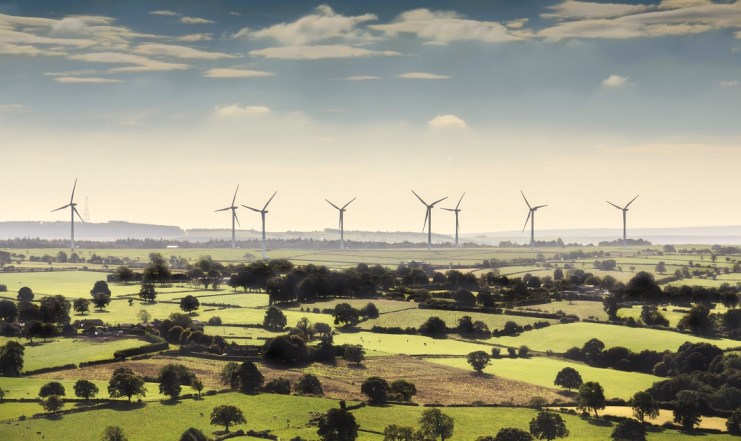Energy analysts welcome renewable plans but warn support for households still needed

Energy experts and industry leaders have largely welcomed the government’s reported plans to bolster the UK’s renewable capabilities, but cautioned that new developments won’t be in place in time to ease this year’s cost of living crisis.
With household energy bills soaring to nearly £2,000 per year next month, and with a further hike widely expected this October, there is increasing pressure on the government to announce further measures to mitigate spiralling costs for energy consumers.
However, Chancellor Rishi Sunak has given no indication he will provide immediate additional help to households on top of the £9bn rebate scheme – with his Spring Statement instead focusing on fuel duty cuts and VAT relief for home improvements like heat pumps and solar panels,
Instead, the latest media reports suggest the government is focused on expanding renewable energy and nuclear capacity, following Russia’s invasion of Ukraine.
According to The Financial Times, Business Secretary Kwasi Kwarteng’s proposals include boosting solar power capacity from 14 gigawatts (GW) to 50GW, offshore wind from 11GW to 50GW, onshore wind from 15GW to 30GW, and nuclear power from 7GW to 16GW.
The targets are expected to be unveiled in the government’s energy supply security strategy, which will be announced by Prime Minister Boris Johnson over the coming days.
Experts doubt ramp-up will ease this winter’s cost of living crisis
Emma Pinchbeck, chief executive of industry body Energy UK, told City A.M. she was keen to read the government’s long awaited strategy, which could make the country more resilient to future market shocks.
However, the long-term shift from gas and volatile wholesale prices required significant reforms to planning laws, which currently prevent onshore wind from being developed outside established community plans.
She said: “Targets need to be backed up by the removal of regulatory barriers that are slowing down viable renewables projects. Over 600 renewables projects have already been granted planning permission but need issues like grid connections addressed, and current planning regulations are also a hurdle for new projects.”
Pinchbeck also suggested the government needed to consider immediate measures to help consumers – rather than waiting for the next update to the price cap.
The energy chief said: “To help people with the costs of the current gas price crisis and the consequences of the war in Ukraine, alongside unlocking our abundant, cheap and secure green power, the government will need to consider how to support customers with bills in the short-term and reduce the demand for gas across the economy, particularly in our homes”
Morgan Schondelmeier, director of operations at the Adam Smith Institute, raised doubts over the role of renewables in easing household bills this winter.
She told City A.M.: “”Energy security is a marathon, not a sprint. Trying to increase capacity of renewables like solar and wind is not the quick fix the government would like it to be. By the time such improvements are operational, energy prices will have already burned a sizeable hole in the pockets of consumers.”
Schondelmeier argued the UK has been in need of a comprehensive energy policy for decades: with a focus on nuclear, energy capture, storage, and National Grid improvements.
Commenting on the current crisis, she said: “What we need now is a package of support for Brits most likely to feel the hit of high energy prices.”
Renewables key to the country’s future
Chris Venables, head of politics at environmental think tank Green Alliance, was pleased enhancing renewables was at the heart of the government’s latest plans.
Speaking to City A.M. said: “Renewables are cheap, popular among the public and can be built in a way that protects nature and benefits communities. Ramping up wind and solar power needs to be at the centre of the government’s plan to cut reliance on Russian fossil fuels.”
This outlook was broadly shared by RenewablesUK, with chief executive Dan McGrail outlining that onshore wind is the country’s cheapest source of power.
He suggested the government can build “shovel-ready projects faster than any other source of energy.”
Venables said: “This will boost the UK’s energy security by reducing our reliance on volatile international gas prices which are hurting consumers.”
The trade association also outlined the country’s current energy pipeline.
Alongside 2,954 operational projects responsible for 14,169MW of energy, there was nearly 20,000 MW in various stages of completion. This included 37 projects under construction (1,258MW) and a further 858 projects consented to (5,725MW).
As it stands, 184 projects (5,490MW) are also in the planning system with 187 projects in earlier development stages (7,397MW).